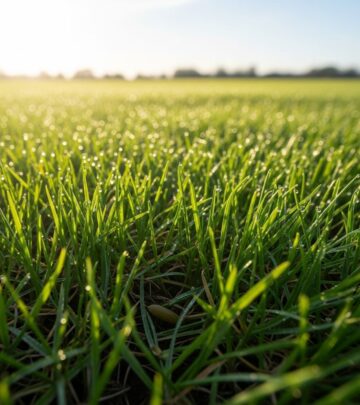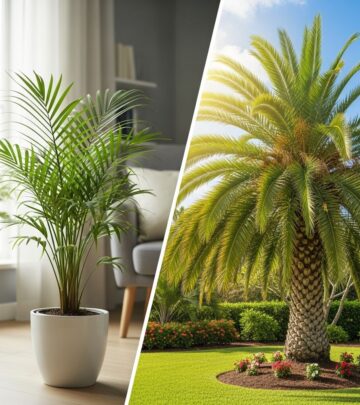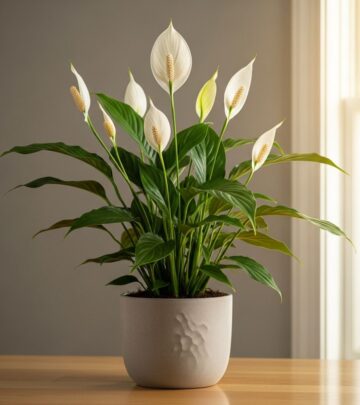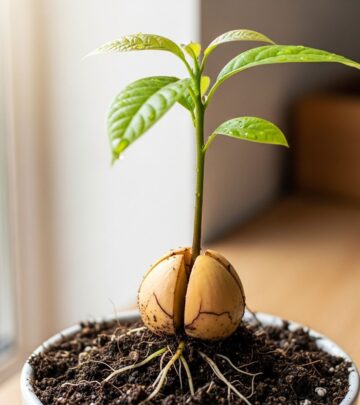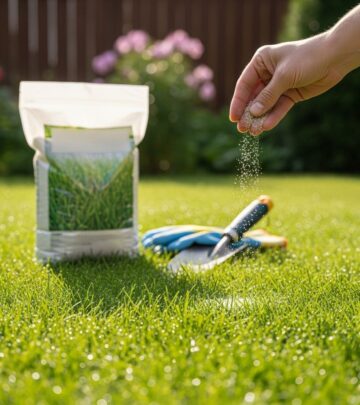Best Fruit Trees to Grow in Tennessee Gardens
Site selection, soil enrichment, and pruning deliver healthy home orchard yields.
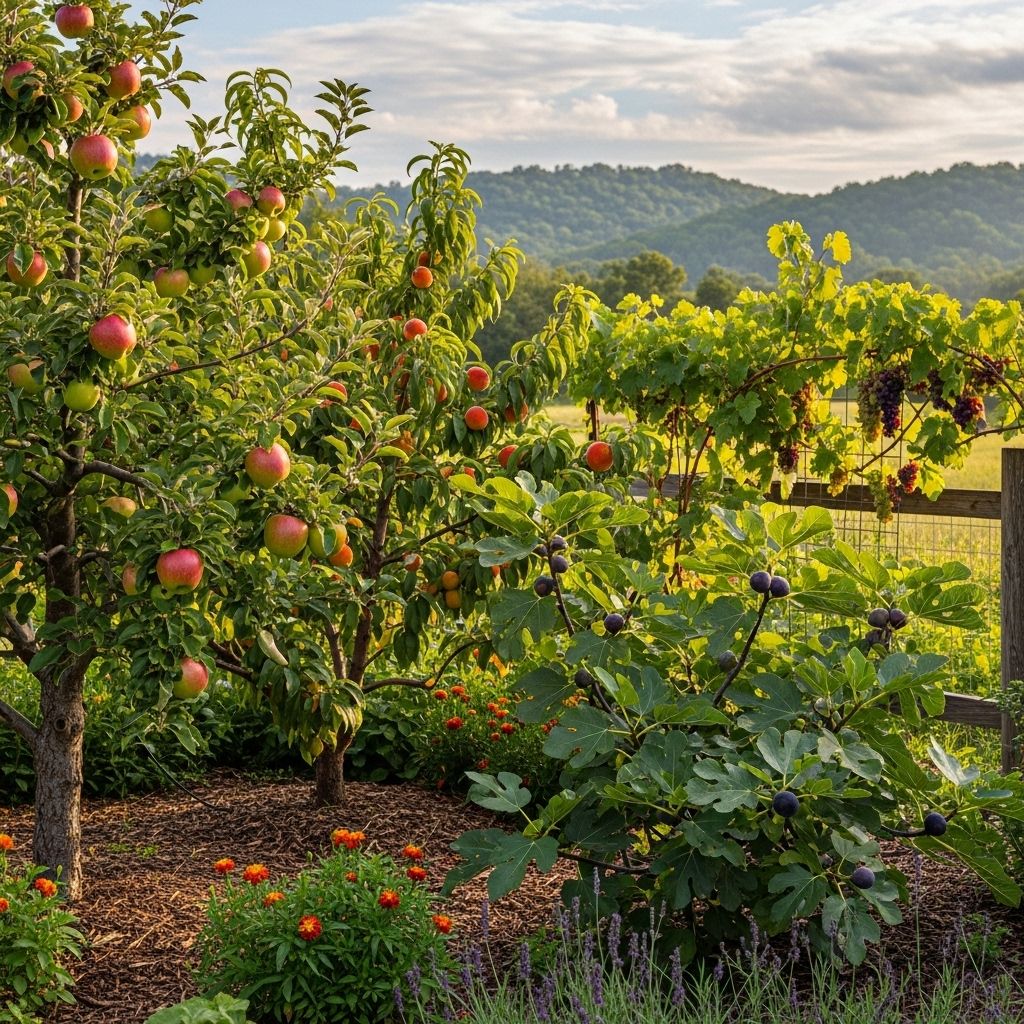
Tennessee’s rich soils and varied climate create an ideal environment for growing a wide range of fruit trees. Whether you have a spacious backyard, a compact suburban plot, or even just a sunny corner, the Volunteer State offers a wealth of opportunities for cultivating a productive fruit orchard. This detailed guide explores the best fruit trees for Tennessee, their growing needs, top cultivars, planting tips, and answers to common questions about starting and maintaining a flourishing home orchard.
Why Grow Fruit Trees in Tennessee?
Tennessee falls within USDA Zones 5b to 8a, making it optimal for a variety of fruit trees. The summertime warmth is enough to set fruit, but not so oppressive as to stress most species. Chilly winters provide the necessary “chill hours” for blossoms, while the cold rarely becomes severe enough to harm mature trees. This climate balance means gardeners can enjoy a lengthy and diverse harvest season. In addition to fresh, homegrown produce, fruit trees also offer beautiful spring blossoms, shade, and valuable habitat for pollinators.
The Best Fruit Trees for Tennessee Yards
These species are renowned for thriving across Tennessee’s landscape. Explore each to discover their unique benefits and top recommended cultivars for your home orchard.
Apples (Malus domestica)
Apples remain one of the most beloved and reliable fruit trees for Tennessee gardens. They grow well throughout the state, adapting to various soils and tolerating local winters. Their showy mid-spring blossoms provide pollinator support and beauty, while the crisp fruits are perfect for fresh eating, baking, and storage.
- Top Apple Variations for Tennessee:
- McIntosh: Classic apple needing about 900 chill hours. Best for colder sections of the state.
- Fuji: Adaptable to Zones 6-8, requires ample water for juicy fruit.
- Granny Smith: Suited for Zones 6-9, needs low chill (400 hours). Self-pollinating; fruit improves with a second tree.
- Gala: Self-pollinating, ideal for Tennessee’s conditions, also cross-pollinates well with ‘Red Delicious.’
- Cultural Notes: Grow in full sun and well-draining soil. Consider espalier (training branches flat along wires or fences) for small spaces.
- Pollination: Plant two different apple cultivars nearby to boost fruit set, unless using a self-fertile variety.
Pears (Pyrus communis)
Pears are another superb choice for much of Tennessee, offering both European and Asian types. They generally tolerate cooler climates better than stone fruits and are valued for their crisp, subtly sweet fruit. Their spring flowers rival apples in beauty.
- Best Varieties:
- Bartlett: Widely grown classic pear.
- Comice: Renowned for its exceptionally sweet flavor.
- Other cultivars are available to suit different flavors and harvest seasons.
- Pollination: Plant at least two different cultivars for reliable fruiting.
- Tips: Full sun and well-drained soil are essential. Pear trees are also suitable for espalier growth or can be pruned to fit smaller spaces.
Peaches (Prunus persica)
Peaches excel in Tennessee’s warmer, southern and western regions. They offer early harvests—sometimes as soon as one to two years after planting—producing juicy fruit prized for eating fresh or preserving.
- Top Features:
- Best for higher USDA zones within Tennessee.
- Fruits mature quickly; less time required for a harvest compared to apples or pears.
- Popular cultivars include ‘Redhaven,’ ‘Elberta,’ and ‘Belle of Georgia.’
- Care Requirements: Choose a sunny, well-draining site. Avoid frost pockets, as tree blooms are susceptible to late freezes in spring.
- Pollination: Most peaches are self-fertile, but planting more than one variety can increase overall yield.
Plums (Prunus domestica and P. salicina)
Plums offer stunning spring blossoms and flavorful fruits. European and Japanese plums both perform well, though they differ in cold tolerance and harvest time.
- Recommended Varieties: ‘Methley,’ ‘Santa Rosa,’ and ‘Ozark Premier’ for Tennessee gardens.
- Pollination: Many plums need a different variety close by for cross-pollination. Double-check your chosen type’s requirements.
- Notes: Full sun is key. Choose well-drained soil that doesn’t puddle after rain.
Cherries (Prunus avium & P. cerasus)
Cherries can be grown in Tennessee though they are generally more demanding in terms of site and care. Sweet cherry trees (‘Bing,’ ‘Stella’) need excellent drainage and protection from late frosts. Sour cherries (‘Montmorency’) tolerate local conditions better and are reliable for baking and preserves. Site selection is crucial: choose higher ground and avoid frost-prone locations.
Figs (Ficus carica)
Figs are increasingly common in southern Tennessee, thriving in the state’s warmest pockets. Their unique flavor profile makes them a prized addition to home orchards or edible landscapes.
- Growth Habits: Can be trained as a small tree or multi-stemmed shrub. Prune annually to keep new wood (the source of fruit) productive and manage height—6 to 8 feet is ideal for easy harvesting.
- Full sun and protection from cold winter extremes are essential. Mulch deeply to insulate roots or consider container growing in northern counties.
Persimmons (Diospyros virginiana & D. kaki)
Persimmons add ornamental value and resilience to Tennessee gardens. Native American persimmon (D. virginiana) is well adapted and virtually carefree, while Asian types (D. kaki) may need additional winter protection in colder areas.
- Self-fertile or need a pollinator depending on the variety. Fruits are highly nutritious and are ready to harvest in late autumn.
Pawpaw (Asimina triloba)
The pawpaw is a native North American treasure, boasting large, tropical-flavored fruits resembling mango and banana. It prefers partial shade and consistently moist, fertile soil—mimicking its natural, forest-understory habitat. For best yields, plant two genetically distinct trees for pollination. Fruits ripen in late summer to early autumn and offer a true treat for the adventurous home grower.
Elderberries (Sambucus canadensis)
Elderberry bushes yield clusters of small, nutritious fruits often used in jams, syrups, wines, and medicinal preparations. They’re adaptable, drought-tolerant, and excellent for boundary hedges or wildlife plantings. Plant two varieties for best fruit set, and prune annually to encourage new growth, as berries form on young wood.
Other Notable Fruit Trees and Shrubs
- Blueberries: Acid-loving, native to the Southeast, thrive in Tennessee’s well-drained yet moist soils with a pH between 4.5 and 5.5.
- Blackberries & Raspberries: Excelling in most Tennessee soils, with trailing, upright, and everbearing varieties for a staggered harvest.
- Nuts (Walnuts, Pecans, Chestnuts): Not a fruit, but vital for long-term food security and landscape value.
How to Successfully Plant and Grow Fruit Trees in Tennessee
Planting fruit trees is an investment that rewards for decades. Consider the following steps for establishing a resilient orchard:
- Site Selection: Choose a full-sun location, avoiding low spots where frost lingers. Good air circulation reduces disease risk.
- Soil Preparation: Work organic matter into the soil before planting. Test your soil pH and amend as needed (apples prefer slightly acidic, blueberries require very acidic soil).
- Spacing and Training: Standard trees need 20-25 feet; semi-dwarfs, 10-15 feet. Dwarf or espaliered trees can fit closer together. Adequate spacing aids light penetration, air flow, and future harvest practicalities.
- Proper Planting Technique: Dig a hole twice as wide and just as deep as the root ball. Remove grass, weeds, and loosen compacted soil at the base and sides.
- Watering: Maintain even moisture, especially for young trees in their first growing season. Mulch helps regulate moisture and suppress weeds.
- Pruning: Prune in late winter to shape the tree and encourage healthy branching. Remove dead or crossed branches. Annual pruning keeps trees productive and disease-free.
- Pest & Disease Management: Monitor regularly for pests such as plum curculio, codling moth, and fungal diseases. Select disease-resistant varieties whenever possible.
Quick Reference Table: Top Fruit Trees and Key Features for Tennessee
| Fruit Tree | Best Zones | Pollination | Years to Bear Fruit | Special Notes |
|---|---|---|---|---|
| Apple | 5-8 | Most need cross-pollination | 2-5 | Espalier possible, many varieties |
| Pear | 5-8 | Need two varieties | 3-5 | Very cold hardy |
| Peach | 6-8 | Self-fertile (usually) | 1-2 | Frost-sensitive; prune annually |
| Plum | 5-8 | Most need cross-pollination | 2-4 | Spring blooms, Japanese & Euro types |
| Cherry | 5-7 | Most need cross-pollination | 4-5 | Sour types more reliable |
| Fig | 7-8 | Self-fertile | 2-3 | Mulch for winter; prune new wood |
| Persimmon | 5-8 | Varies by variety | 3-5 | Ornamental; native types hardiest |
| Pawpaw | 5-8 | Plant two for fruit | 4-8 | Partial shade, moist soil |
| Elderberry | 5-8 | Plant two for fruit | 2-3 | Can be pruned as shrub |
Tips for Maximizing Fruit Tree Success in Tennessee
- Hardiness: Always match your fruit tree selection to your local USDA hardiness zone.
- Chill Hours: Choose cultivars that align with your area’s winter chill hours; too few, and fruiting fails.
- Irrigation: Water deeply during establishment and prolonged dry periods. Drip irrigation is effective for consistent moisture.
- Soil Testing: Routine soil tests help address pH and nutrient imbalances before planting.
- Companion Planting: Herbs and wildflowers attract pollinators and beneficial insects, naturally enhancing yields and reducing pest issues.
Frequently Asked Questions (FAQs) About Tennessee Fruit Trees
Can I grow citrus trees in Tennessee?
Citrus is not generally hardy outdoors in Tennessee. However, dwarf lemons, limes, and oranges can be grown in containers and brought indoors during the cold months for success.
Do I need to plant more than one tree for fruit production?
For apples, pears, plums, and most cherries, cross-pollination from a different cultivar is needed for proper fruiting. Peaches, figs, and some persimmons are self-fertile but can still benefit from a partner tree to boost yields.
What is the best time of year to plant fruit trees?
Plant trees in late winter to early spring, before buds break but after the chance of the harshest frost has passed. Bare-root trees are best planted in early spring, while container-grown trees offer more flexibility.
How should I prune my fruit trees?
Prune in late winter, removing dead wood, crossing branches, and shaping the tree for good airflow and sunlight penetration. Annual pruning is essential for productivity and health.
What are common pests or diseases for Tennessee fruit trees?
Some pests include plum curculio, codling moth, Japanese beetles, and aphids. Fungal diseases like apple scab and peach leaf curl can also appear. Mulch, sanitation, variety selection, and appropriate spacing minimize most risks, but be prepared to use approved sprays if necessary.
Conclusion: Start Your Own Tennessee Orchard
With careful selection, site preparation, and a little annual care, Tennessee gardeners can grow an impressive assortment of delicious fruit trees in their own backyards. Start with a couple of well-chosen varieties or fill your landscape with different species for a continuous harvest season. The rewards—fresh fruit, beautiful blooms, and a thriving, sustainable garden—are well worth the investment.
References
Read full bio of medha deb

